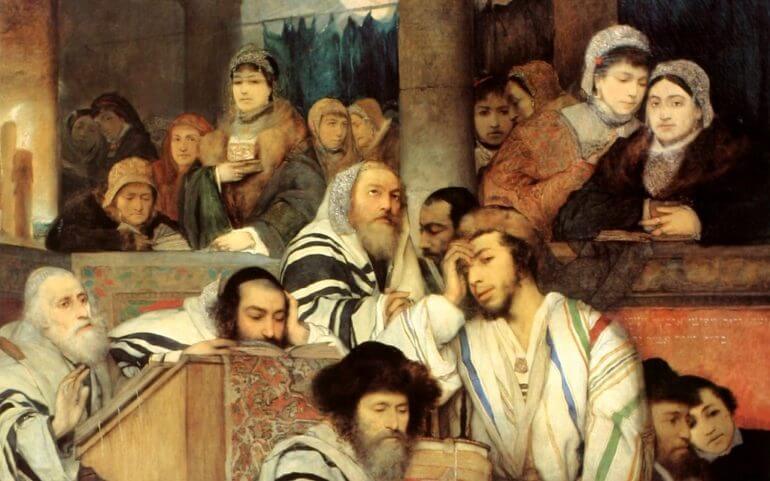
Is There a Way to Understand Blood Libel Accusations against Jews?”
Dear Jew in the City,
Is there anything we can look to within Jewish sources to understand the blood libel accusations against Jews when Jews uniquely value life?
Sincerely,
Samuel
Dear Samuel,
Thanks for your question. The short answer is no. The longer answer is also no. Jewish sources are great for explaining why we may do what we do, but they’re not much help in explaining the choices or actions of others.
Let’s first examine what a blood libel is. Historically, it’s an antisemitic canard that alleges that Jews would murder Christians, in particular children, in order to use their blood as an ingredient in the baking of matzah, for the four cups at the Seder, or for other ritual purposes. This was typically done in order to stir up waves of violence against Jewish communities. (Such claims are, of course, ridiculous, for reasons we’ll address shortly.)
Most sources will tell you that the first blood libel took place Norwich, England, in the year 1144. A boy named William was found dead and Thomas of Monmouth, a monk, accused the local Jews of the crime. Their motivation, he alleged, was to mock the crucifixion of Jesus. From this, a myth arose that, each year, the worldwide Jewish leadership (as if there was such a thing) would choose a country where such a ritual murder would be held. Throughout the Middle Ages, whenever a Christian child went missing, it became de rigeur to accuse the local Jews of abduction and murder. There are about 100 documented blood libels between the 12th and 16th centuries, many of which resulted in massacres. The idea of the blood libel is invoked in “The Prioress’s Tale” in Chaucer’s The Canterbury Tales. Martin Luther, who kickstarted the Protestant Reformation, took the blood libel as fact in his 1543 book with the lovely title On the Jews and Their Lies.
The blood libel continues to this day. In 1840, the Damascus Jewish community was charged with the alleged killing of a missing monk. In 1913, a Ukrainian Jew was charged with killing a 13-year-old boy in Kiev, based on “expert testimony” of Jewish ritual use of Christian blood. In 1928, Jews in Massena, New York, were charged with killing a four-year-old girl who had disappeared. (The girl ultimately turned up alive and well.) The antisemitic newspaper Der Stürmer, run by infamous Nazi Julius Streicher, promoted the blood libel myth through the 1920s and 1930s, dedicating an entire issue in 1934 to the “Jewish Murder Plan against Gentile Humanity.” In 2014, a Hamas spokesman on Lebanese television claimed – without presenting any evidence – that blood libels are an established “fact, acknowledged by (the Jews’) own books and by historical evidence.” (That’s odd, because my books and historical evidence suggest the exact opposite. There’s a reason it’s called “blood libel” and not “blood fact.”)
I said that most sources cite the case of William of Norwich as the first blood libel, but there were in fact antecedents. For example, a 1096 pogrom in the Rhineland was triggered by such allegations. Going back even further, Apion Pleistoneices, a Hellenized Egyptian, accused the Jews of such ritual murder in the time of Antiochus. (“…they did the same at a set time every year: that they used to catch a Greek foreigner, and fat him thus up every year, and then lead him to a certain wood, and kill him, and sacrifice with their accustomed solemnities, and taste of his entrails, and take an oath upon this sacrificing a Greek, that they would ever be at enmity with the Greeks ….”) Josephus has an entire work dedicated to repudiating Apion’s antisemitic charges (aptly titled Against Apion).
Blood libels often occurred just prior to Passover, leading to Jews being accused of using the blood for the four cups and to bake matzah, because of the proximity of Passover to Easter. This is because Jews were held responsible for the crucifixion of Jesus, which is said to have occurred at that time of year. Nevertheless, Christians are not a necessary component of the blood libels. As we have seen, Apion accused the Jews of ritual murders against the Greeks. (Apion was born about 20 years before and died about 10 years after the generally accepted lifespan of Jesus, so Christians weren’t even a blip on his radar.) The 1910 Shiraz pogrom in Iran was triggered by accusations that local Jews had ritually murdered a Muslim girl. And today, pro-Hamas activists spread the lie that Israel murders Palestinians in order to harvest their organs, a contemporary spin on the ancient lie. So, Christianity is not required.
I promised I’d explain why the blood libel charges are ridiculous, so here goes:
- The murder of any human being is absolutely prohibited by the Torah. I shouldn’t have to cite a source, but for the sake of being complete, it’s in Exodus 20:13.
- The consumption of blood is repeatedly prohibited; it’s actually a pretty severe offense, resulting in kareis (spiritual excision). See Leviticus 3:17, 7:26-27, and 17:10-14, and Deuteronomy 12:16 and 23-25.
- Matzah for purposes of the mitzvah must be made from flour and water, with no other ingredients. Even if we were allowed to murder (which we’re not) and even if we were allowed to eat blood (which we’re not), killing someone to use their blood in matzah would be counter-productive.
Simon of Trent, a three-year-old boy, went missing in 1475. He became the subject of a blood libel accusation, ultimately resulting in his veneration as a martyr. In 1965, the Catholic Church repudiated the concept of the blood libel, and removed Simon of Trent from the martyrology. Despite no longer having the theological support it once enjoyed, the myth of the blood libel persists. This is because it’s not based on facts. It’s not based on our Bible or anyone else’s. It doesn’t even have a tenuous, out-of-context statement in the Talmud for haters to hang it on. It’s because the blood libel is a lie, pure and simple, perpetuated by antisemites for no reason other than hatred.
So, to answer your question, the long, longer, longest answer continues to be no. Hate simply doesn’t need to make sense.
Sincerely,
Rabbi Jack Abramowitz
Educational Correspondent
Follow Ask Rabbi Jack on YouTube
If you found this content meaningful and want to help further our mission through our Keter, Makom, and Tikun branches, please consider becoming a Change Maker today.







